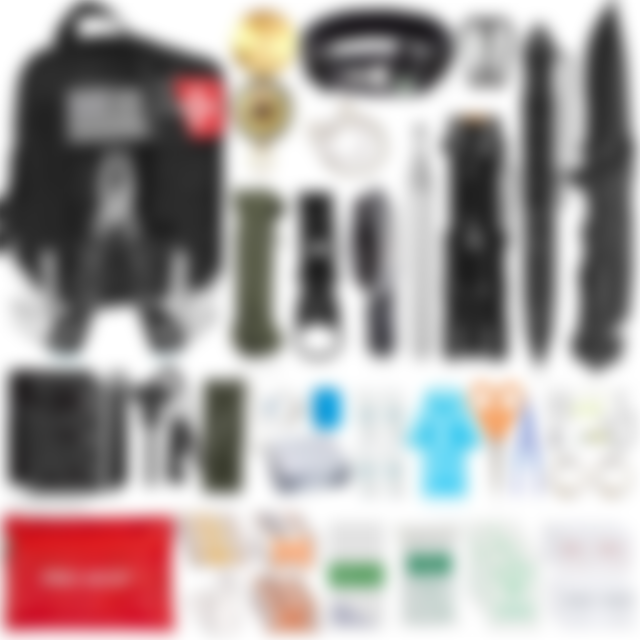Survival Kits - The items you need to survive.

In every survival situation, we need basic equipment to physically survive. Not only do we need the equipment, we need to know how to use them, therefore we plan.
This post covers the basics, more posts to follow that are more specific.
Planning
How do we know which equipment to take? We have to plan.
Where are we going (how far is it)?
What are we going to do when we get there (shelter, fight)?
How are we planning on getting there (walk, drive)?
How long are we staying there (weeks, months)?
Anything that we take, is going to add weight, so make sure you only take the most important things.
Carry on your body.
The environment and our activity is going to dictate what we take with us. If you are in a car, you can carry more, but if you're on foot, you carry less.
You must prioritize your survival kit, the most important things, you physically carry on your body (in pockets and backpack):
Map and compass.
Knife.
Matches/lighter.
A little water/food.
Small first aid kit.
And your weapon (if needed).
The more heavy items, like extra clothes, blankets, can be in your luggage.
Backpacks...
Fanny packs, or any “on body” load-bearing equipment that hold your items should be:
Water repellent or waterproof (plastic bag over your backpack could temporarily be used).
Easily carried and attaches to your body.
Can hold various sizes of items (lots of small pockets in your backpack).
Durable.
Survival Kit Items:
First-aid kit, surgical or razor blades, butterfly sutures for deep cuts, alcohol wipes.
Water purification tablets and metal cup to boil water.
Fire starting items: Lighter, matches (in a plastic bag), candle, magnifying glass.
Signaling items (to signal friendlies): small mirror or reflective item.
Food procurement items: knife, snare wire for snaring fish and small animals, fishing hook.
Shelter items: blankets (regular and solar).
Miscellaneous: chapstick, condoms for water storage, needle and thread, compass, maybe a small flashlight, multitool, sturdy plastic bags.
In Conclusion:
This list is not exhaustive, and some of the things you may not have, but pack your survival items now, just in case you need to leave quickly.
Also remember, the more things you carry, the heavier it's going to be, and if you have to walk long distances, it's going to require more water, food and energy to keep you going, so only pack the most important things for your survival.
Getting to a refugee station is important. They will more than likely have food, supplies and first aid. If you can, map out where the refugee stations are, so if you have to leave, you know exactly where you need to go, so you can leave as quickly as possible.
